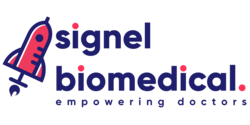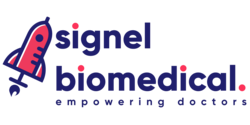
Unrevealing the impact of AI in dentistry
Artificial Intelligence is rapidly transforming healthcare, and dentistry is no exception. In recent years, we've witnessed an unprecedented integration of AI into various aspects of dental practice, from diagnostic procedures and treatment planning to patient engagement and administrative tasks.
The technological revolution is not just about automation; it's about augmenting the capabilities of dental professionals, enhancing accuracy, improving patient outcomes, and opening new frontiers in dental research and education.
AI's journey in dentistry has been marked by significant milestones. From using machine learning algorithms for analyzing dental images to developing sophisticated AI models for predicting treatment outcomes, the scope of AI's application in dentistry is vast and continually expanding.
These advancements are making dental procedures more efficient and contributing to more personalized and preventive dental care. This article aims to provide a comprehensive and integrated perspective on the role of AI in dentistry.
AI applications in Dentistry :
To understand this , we synthesize insights from various sub-specialities as well as dental procedures that collectively cover the spectrum of AI's application in the field.
These sources are :
1. AI in General Dentistry Practice
Overview of AI Applications in Dentistry
In general dentistry, AI has emerged as a transformative force, altering traditional practices and introducing new dimensions in patient care. Its applications span various domains:
Find out the examples of AI powered dental diagnosis here :
AI Dental Imaging Technology:
Case Studies and Research:
2. Personalized Treatment Plans:
Every patient is unique, and their dental needs vary. AI algorithms for dental care can analyze vast amounts of patient data, including medical history, genetic predispositions, and lifestyle factors, to create personalized treatment plans. By tailoring treatments AI ensures optimal outcomes, minimizes risks, and enhances patient satisfaction .
This is how the treatment plans can be made with the help of artificial intelligence :
Customization of Dental Appliances:
Treatment Adaptability:
3. Patient Care Automation:
AI-driven tools has completely automated the doctor - patient interactions, from providing customized oral hygiene recommendations based on individual risk assessments to answering patient queries and this is made through intelligent chatbots.
2. AI IN ENDODONTICS :
Artificial Intelligence has carved a significant niche in the field of endodontics, revolutionizing traditional practices with its advanced capabilities:
3. Advancements in Prosthetics and Implants:
Precision is paramount in prosthetic dentistry and implantology. AI-driven CAD/CAM systems facilitate the design and fabrication of custom dental prosthetics with unmatched accuracy and efficiency. From crowns and bridges to dental implants, AI ensures precise measurements, aesthetics, and fit, resulting in superior outcomes and patient satisfaction. Additionally, AI-based surgical planning tools such as PeekMed assist dentists in implant placement, reducing risks and enhancing success rates.

4. AI driven oral health management
The oral health can be managed with the help of teledentistry and remote monitoring . Teledentistry has enabled remote consultations, monitoring, and follow-ups. AI-driven applications facilitate virtual consultations, where dentists can assess patients' oral health remotely, offer guidance, and prescribe treatments when necessary. Moreover, AI-powered monitoring devices, such as smart toothbrushes and intraoral cameras, allow patients to track their oral hygiene habits and receive real-time feedback, promoting better oral health outcomes between visits.
5. Enhanced dental workflow with AI :
Time is of the essence in a dental practice. AI streamlines administrative tasks, appointment scheduling, and patient management processes, allowing dentists and staff to focus more on patient care. Virtual assistants powered by natural language processing (NLP) can handle patient inquiries, appointment reminders, and follow-ups, improving efficiency and communication within the practice. This optimization of workflows leads to smoother operations , better patient experiences and thus , will increase the workflow in dental clinics .
6. Future of AI in Dentistry

CONCLUSION :
In conclusion, the integration of AI in dentistry represents a transformative journey towards precision, efficiency, and patient-centered care. From enhancing diagnostics to optimizing treatment plans, AI-powered solutions are revolutionizing every aspect of the dental practice. As AI continues to evolve, its potential to improve oral health outcomes and revolutionize dentistry for the better is boundless. Embracing this technological revolution is not just a choice but a necessity for the future of dentistry.













